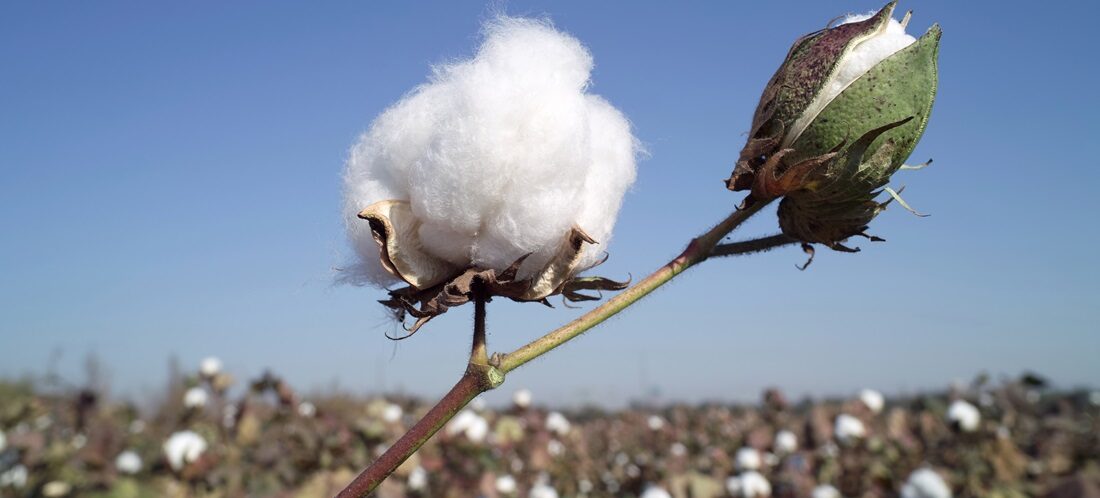
Brazil’s Cotton Industry Sees Major Advances in 2023/24 Season
Aug, 21, 2024 Posted by Gabriel MalheirosWeek 202434
The 2023/24 season could prove itself a watershed moment for Brazil’s cotton industry. The country has not only achieved its goal of becoming the world’s largest cotton exporter—an ambition originally set for 2030—but has also secured a prestigious new client that could further enhance Brazil’s reputation for high-quality cotton.
Since opening its market in January 2023 and beginning trade about ten months ago, Egypt has quickly become the ninth-largest destination for Brazilian cotton exports. The volume in question is modest—17,900 tons with revenue of $32.7 million—compared to 1.3 million tonnes bought by China, Brazil’s top client in this industry.
Still, Egypt’s endorsement significantly boosts Brazil’s quest to stand out among leading exporters. The country, known for its long-staple “Egyptian cotton,” is seeking a reliable long-term partner for its cotton supply, as its own production cannot expand further.
With growing interest from Egyptian industrialists, demand for Brazilian cotton is expected to double in the 2024/25 cycle, according to the Brazilian Cotton Growers Association (Abrapa). “There is room for much more growth,” says Abrapa President Alexandre Schenkel.
“The quality of Egyptian cotton is among the best in the world. Now, they are blending it with Brazilian cotton. If the world’s top quality benchmark appreciates Brazilian cotton, it means we are on the right track in terms of quality,” Schenkel stated during a visit organized by Abrapa to the Pamplona Farm, operated by SLC Agrícola, in Cristalina, Goiás. The farm cultivates over 8,000 hectares of cotton and is in the final stages of harvest.
In recent months, Brazilian cotton growers have visited Egyptian companies to strengthen these commercial ties. According to Schenkel, the exports to Egypt were significant. The market could serve as a vital showcase for Brazil’s global standing.
“The Egyptians are looking for partners because their industry is growing. They want secure and strategic partners to supply high-quality cotton responsibly in the coming years,” he said.
Over the past 25 years, Brazil’s cotton production has evolved dramatically, moving from being the second-largest importer—following a near collapse of the domestic output due to the boll weevil—to the world’s top exporter. This status was achieved after shipping 2.68 million tons between August 2023 and July 2024, all from a smaller area than was cultivated in the 1980s.
The following chart shows Brazil’s cotton exports in containers from January 2022 and June 2024, according to information derived from DataLiner, Datamar’s leading maritime intelligence service.
Cotton Exports from Brazil | Jan 2022 – Jun 2024 | TEUs
Source: DataLiner (click here to request a demo)
Brazilian producers know that maintaining the top spot in cotton exports depends on several market factors. However, early estimates suggest Brazil will consolidate its leadership in the 2024/25 season.
A recent Abrapa report indicates that projections for the new harvest suggest Brazil will remain the top exporter. The National Cotton Exporters Association (Anea) forecasts a 6.7% increase in exports for the 2024/2025 commercial period, reaching 2.86 million tons. The U.S. Department of Agriculture (USDA) estimates shipments at 2.72 million tons.
The harvest is halfway through and is expected to be another record, with 3.67 million tons of cotton, driven by a 19.5% increase in area this cycle to 1.99 million hectares.
Schenkel emphasizes that the strategy goes beyond competing with other producing countries, aiming to promote and encourage global cotton consumption. The global textile industry has been expanding, but it mostly uses synthetic fibers, which cotton producers aim to reclaim.
“The main goal is to encourage the use of cotton. This will help us increase our market share. We can leverage our efficiency in Brazil to boost production and exports. We need to promote cotton usage worldwide,” he said. “We have one of the best fibers in the world for the textile industry, and we maintain social and environmental responsibility on our farms.”
Cotton cultivation occupies just 0.2% of Brazil’s territory, noted Abrapa Executive Director Márcio Portocarrero. Over 80% of the national production (2.55 million tons) is certified for good socio-environmental practices through the ABR (Brazilian Responsible Cotton) program and the Better Cotton Initiative (BCI), the leading international certification for the sector.
Brazil is also the largest exporter of BCI-certified cotton, with 1.98 million tonnes shipped in the 2023/24 season. A significant portion of that production (720,000 tons) supplies the domestic industry), which is the seventh-largest in the world and the leading producer of denim.
Portocarrero added that beyond serving the textile market, cotton crops impact food production and job creation. Over half of the harvested yields correspond to seeds, which are turned into feed and oil for biofuels and food production. “The oil is used in haute cuisine, leaving no trace or flavor in the food,” he said. The fiber extracted from the seed is used to make carpets and even banknotes.
Source: Globo Rural
Link to original reporting: https://globorural.globo.com/agricultura/algodao/noticia/2024/08/algodao-brasileiro-avanca-no-egito-a-terra-da-pluma-de-alta-qualidade.ghtml
-
Grains
Feb, 11, 2022
0
Corn exports lose priority to soybeans and face little international demand
-
Grains
Jan, 14, 2022
0
Agribusiness exports have set records in December and in 2021 alike
-
Economy
Nov, 09, 2023
0
State and Federal Partnership: Secex Implements NF-e Changes for Export Simplification
-
Meat
Aug, 05, 2021
0
Revenue from beef exports reached $1 billion in July



